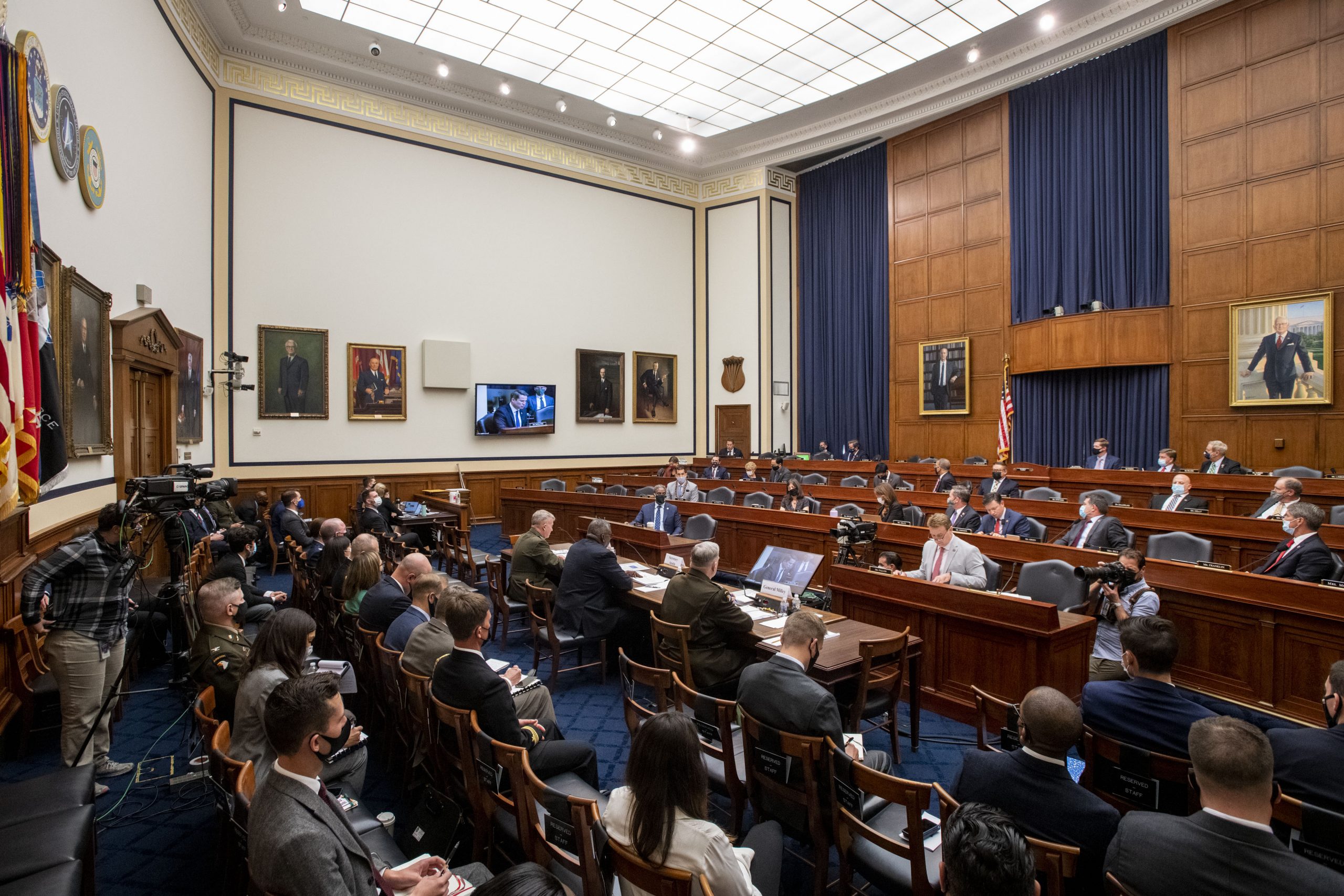The US troops pullout from Afghanistan ahead of the Taliban coup in the war-torn country and the way evacuation were managed had been a subject of contention for the opposition leaders and even the Democratic party, which has expressed frustration on the handling of the conflict. To discuss the issue, the United States Senate Armed Services Committee has been holding hearings on the conclusion of military operations in Afghanistan.
The hearing had so far witnessed Defence Secretary Lloyd Austin, General Mark Milley, chairman of the Joint Chiefs of Staff, and General Frank McKenzie of US Central Command have enlightened the committee about the behind the scene decisions taken on the ground since the Taliban won the war in August.
Also Read: Democrats, Republicans agree on government funding resolution: Sen. Schumer
Here are the key highlights from the hearing.
Commanders wished to keep at least 2,500 troops in Afghanistan
The hearing saw some military generals testifying that they recommended leaving at least 2,500 troops in Afghanistan to which President Joe Biden disagreed.
The White House, however, defended the presidential decision, acknowledging that it was a split recommendation from Biden’s advisors and generals
Afghan Army defeat
Defense Secretary Lloyd Austin told Congress that the Afghan army’s collapse caught the Pentagon “by surprise.”
On being asked why the US did not foresee the collapse of the Afghan army, General Milley said that in his opinion the US military lost the ability to understand the ground conditions of the Afghan forces. Earlier the US forces utilised defence advisors to analyse conditions in Afghanistan, a practice they gave up some years ago.
Also Read: Can the US government avoid the shutdown on October 1?
‘You can’t measure the human heart with a machine, you have to be there,” Milley said.
No discussion on Pakistan-ISIS ties with the Taliban
Defence Secretary Austin said that a topic like ISIS and Pakistan ties with the Taliban can only be discussed behind closed door since it consists of various confidential data concerning national security.
The Afghan war, a strategic failure
General Milley called the 20-year-long war between the United States and Taliban a strategic failure during the hearing.
“Outcomes in a war like this, an outcome that is a strategic failure — the enemy is in charge in Kabul, there’s no way else to describe that — that is a cumulative effect of 20 years,” he said.
Call to China after at end of Trump presidency
General Milley, who was heavily criticised after reports of him making two calls to Gen. Li Zuocheng of the People’s Liberation Army to assure him that the United States was not suddenly going to go to war with or attack China at the end of Trump’s presidency defended himself during the hearing. Milley said that he made the two calls to his Chinese counterpart in response to a “significant degree of intelligence” that China was worried about a US attack.







